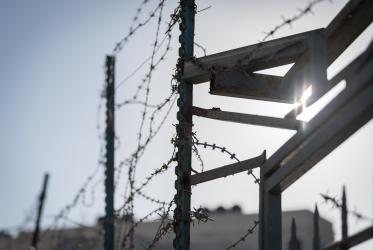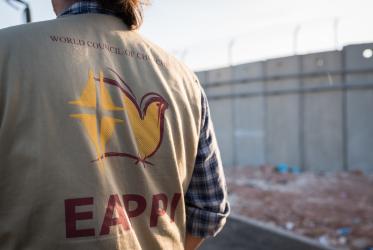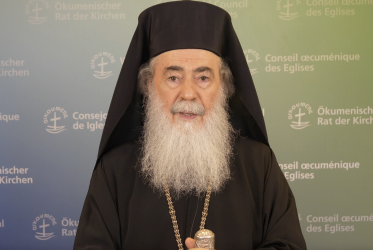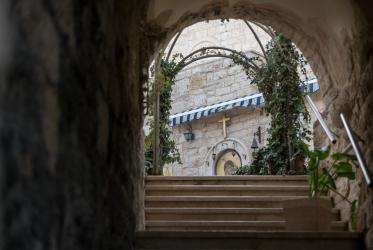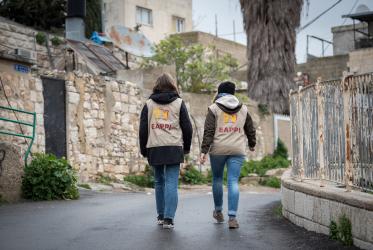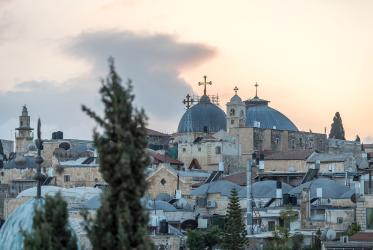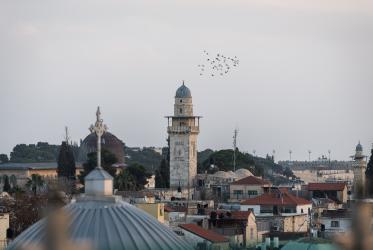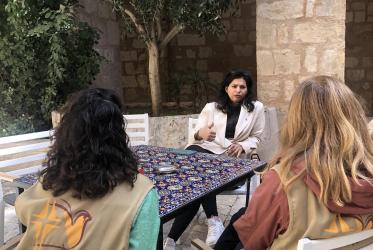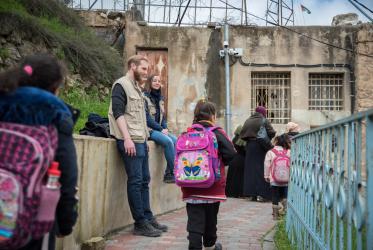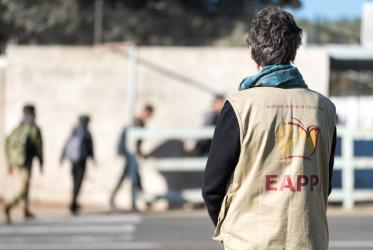Displaying 1 - 20 of 187
Violations of human rights escalate in Masafer Yatta, Jerusalem
30 November 2023
Global prayer reflects on spiritual home in the Holy Land
18 September 2023
WCC calls on Israeli government to allow access to holy site
21 August 2023
WCC marks 75th commemoration of “Al-Nakba”
16 May 2023
WCC call for respect for international law in the Holy Land
30 December 2022
As Bethlehem prepares for Christmas, ‘it’s all about community’
08 December 2022




